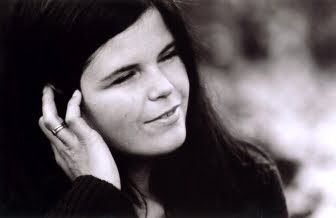
Julia Franck
- Germany
- Zu Gast beim ilb: 2007
Julia Franck was born in East Berlin in 1970. She moved to the western part of the city with her mother and three sisters in 1978 and then to Schleswig-Holstein. Upon receiving her high school diploma in Berlin she studied ancient American studies, philosophy and modern German literature at the Free University. She worked as an assistant nurse, waitress, audio typist and translator and freelanced for the “Frankfurter Allgemeine Zeitung”, the “Süddeutsche Zeitung”, Berlin’s “Tagesspiegel”, “Merian” and “Brigitte”. She also worked as assistant director at the radio station Freies Berlin from 1994 to 1996.
The first recognition of her literary work came when she won the Open Mike Literature Competition in 1995. In 1997 she made her literary début with the novel “Der neue Koch” (t: The new chef), and was awarded the Alfred Döblin scholarship by the Academy of the Arts the following year. Her next novel, “Liebediener” (1999; t: Love servant) was heralded in the “Süddeutsche Zeitung” as “if anything, the most pr ofound love story of the nineties”. In “Bauchlandung” (2000; t: Belly landing), her short story collection, she allows, with a loving eye for occasionally bizarre details, her exclusively female pr otagonists to talk lustfully and passionately about their own longings and misadventures within human relations. As if using a scalpel, Franck neatly carves out her characters’ world of experience in single components and describes disastrous love affairs with cool powers of observation and sensual language. “I want to write stories in which readers are so involved in the pr otagonist’s story that they forget they are even reading.” Franck was awarded the 3sat Prize from Klagenfurt’s “Days of German-speaking Literature” for the last story in this collection, “Mir nichts, dir nichts” (t: Just like that). Her novel “Lagerfeuer” (2003; t: Bonfire) focuses on her experiences at Marienfelde, West Berlin refugee camp, and tells the story of three female refugees who only gradually realize that the land of their dreams does not exist outside their imaginations. The novel was awarded the Marie Luise Kaschnitz Prize and confirmed Franck’s reputation as an established writer even after the decline of the boom in German literature by young writers and the so-called “Fräuleinwunder”. Her latest work, “Die Mittagsfrau” (2007; t: The Midday Woman), is a family chronicle set during the two world wars. It offers an account of the destiny of a fascinating woman who one day abandons her small son, and sheds light on the biographical circumstances leading to such a radical decision.
It earned her the German Book Prize in 2007. Among her further distinctions are the Roswitha Prize by the city of Gandersheim and a grant by the Villa Massimo. In 2006 Franck took over as guest lecturer in poetics at Wiesbaden’s technical college. She is a member of the German PEN Centre and lives with her two children in Berlin.
© international literature festival berlin
Der neue Koch
Ammann
Zürich, 1997
Liebediener
DuMont
Köln, 1999
Bauchlandung
DuMont
Köln, 2000
Lagerfeuer
DuMont
Köln, 2003
Mir nichts, dir nichts
DuMont
Köln, 2006
Die Mittagsfrau
Fischer
Frankfurt/Main, 2007
